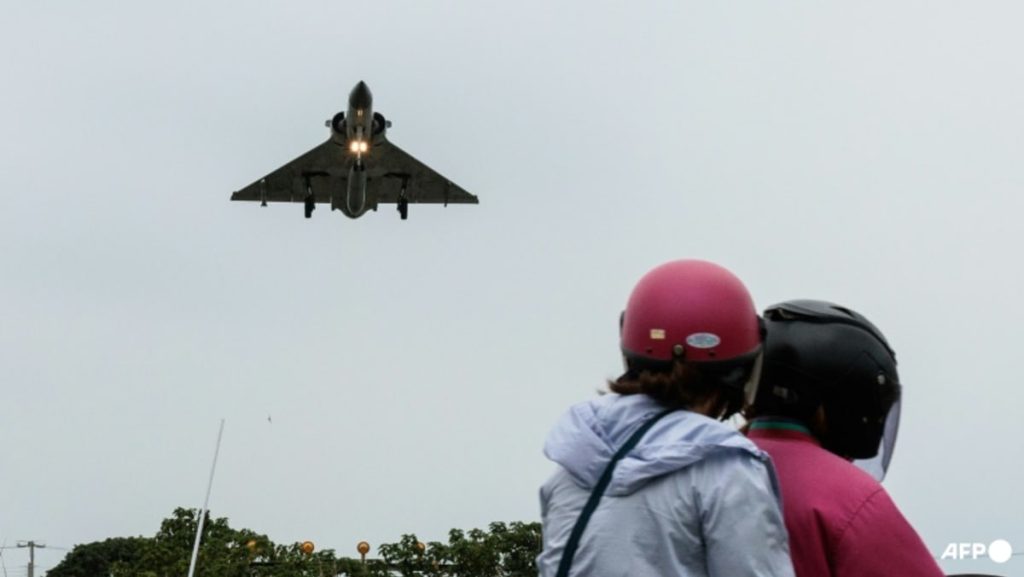China’s military conducted a second day of war games around Taiwan in response to President Lai Ching-te taking office. The drills were held in the Taiwan Strait and near Taiwan-controlled islands, aimed at testing their ability to seize power and control key areas. Lai’s inauguration speech, which called on Beijing to stop its threats, was denounced by China. The People’s Liberation Army’s Eastern Theatre Command continued the drills, named “Joint Sword – 2024A”, to demonstrate the ability to jointly seize power and launch attacks.
China sees Taiwan as its own territory and considers Lai a separatist. The ongoing exercises are a display of China’s military power to bring Taiwan under its control if necessary. An animated video was shared on social media showing missiles targeting Taipei, Kaohsiung, and Hualien, emphasizing China’s determination to prevent Taiwan’s independence. The use of force has not been ruled out by China, as tensions between the two sides continue to escalate.
Taiwan has condemned China’s drills, viewing them as a threat to its sovereignty. The military actions were prompted by Lai’s inauguration speech, where he openly challenged Beijing and asserted Taiwan’s autonomy. The exercises around Taiwan and in the Taiwan Strait are seen as a direct response to Lai’s rhetoric and defiance towards China. Despite Taiwan’s protests, China remains steadfast in its goal of bringing Taiwan under its control and has reiterated its commitment to defending its sovereignty and territorial integrity.
The war games are a show of force and a warning to Taiwan to comply with China’s claims of sovereignty. The drills are meant to demonstrate China’s military capabilities and readiness to defend its territorial interests in the region. By conducting exercises near Taiwan-controlled islands and practicing joint attacks, China aims to intimidate Taiwan and deter any moves towards independence. The missile launches and animations are a clear message to Taiwan that any attempts to declare independence will be met with severe consequences.
The ongoing tensions between China and Taiwan are rooted in their historical and political differences. China’s insistence on reunification with Taiwan clashes with Taiwan’s desire for autonomy and self-governance. President Lai’s inauguration speech further heightened these tensions, leading to China’s aggressive military response. The risk of conflict between the two sides remains high, as China continues to assert its authority over Taiwan and Taiwan refuses to back down from its demands for independence. The situation in the Taiwan Strait is fragile, with both sides unwilling to compromise on their core beliefs.
As the situation in the Taiwan Strait escalates, the international community is closely monitoring the developments. The US, in particular, has expressed its support for Taiwan’s sovereignty and has criticized China’s military drills as aggressive and destabilizing. Other countries in the region are also concerned about the potential for conflict between China and Taiwan, as any military confrontation could have far-reaching consequences. Diplomatic efforts to ease tensions and find a peaceful resolution to the Taiwan issue are crucial in preventing further escalation and maintaining stability in the region.


